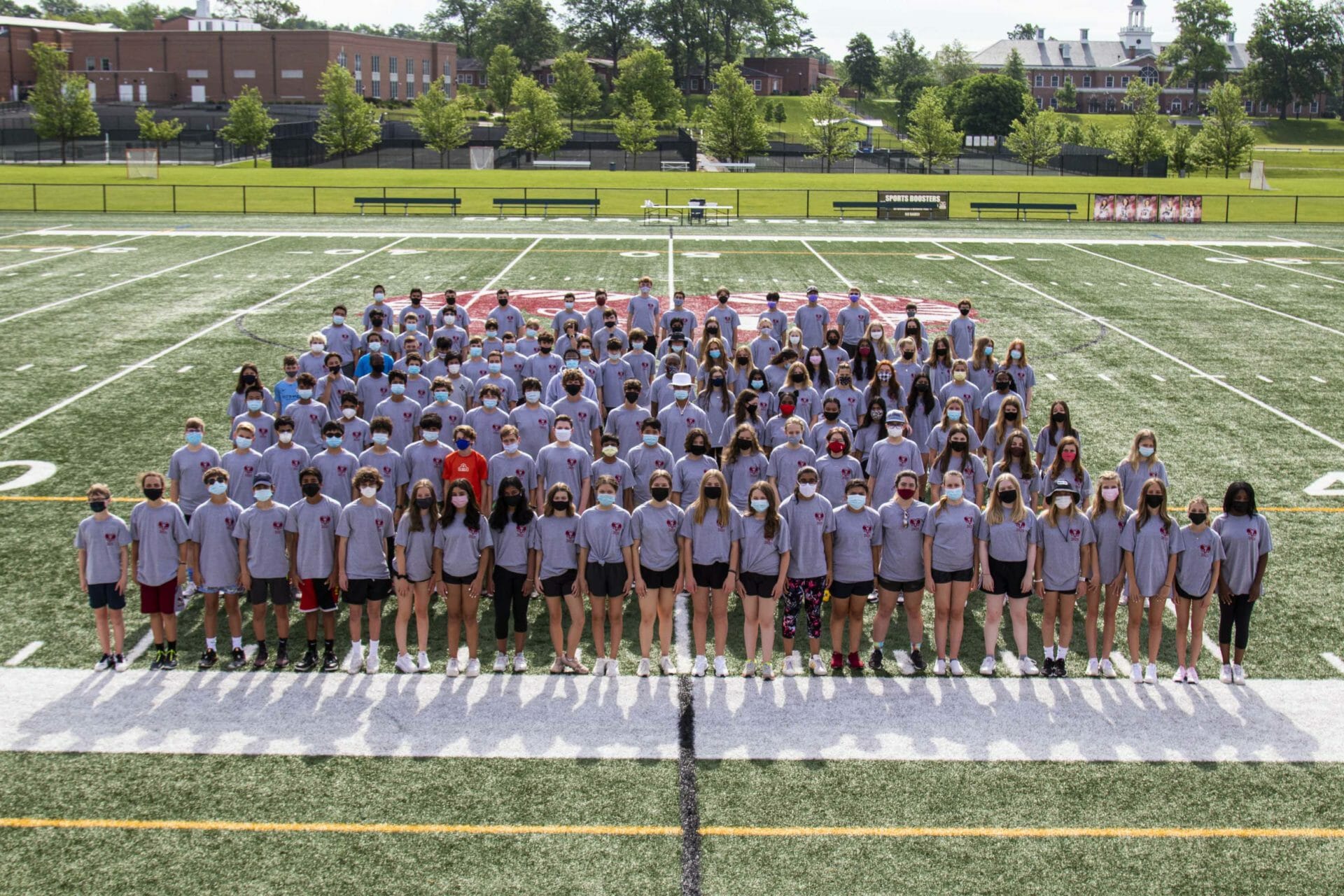The following remarks were made to the MICDS Class of 2025 at the Eighth Grade Celebration Night on Wednesday, May 26. Earlier that day, Head of School Jay Rainey also addressed the MICDS Class of 2029 at the Fourth Grade Recognition ceremony. Those remarks are available here.
I have a friend in Virginia named Cory who washes dishes at a school where I used to work. He still calls me every few days to talk about his dog, or what’s on TV, or what he likes to eat. Cory was born with very limited cognitive ability, but he has as much happiness ability as anyone I know. I remember whenever someone would drop a tray of food or knock over some dishes within earshot of Cory in the lunchroom, he would shout, “This is why we can’t have nice things!” Then he would get right back to work, often smiling or even singing for no apparent reason. It didn’t seem to bother Cory too much that we can’t have nice things.
Reflecting on the last 15 months, one could argue that the coronavirus pandemic has been a universal and protracted “this is why we can’t have nice things” experience. By way of rebuttal to this perspective, however, and uplift, the MIT Technology Review has been publishing a daily column called “We can still have nice things” ever since March 2020. This week’s editions have included, for example, instructions for building a bird kite, a picture of a family of frogs hanging out on some tropical flower blooms, and the story of a New Jersey man who has cashed in on his fully vaccinated status for a free Krispy Kreme doughnut every single day for over a month. (No word yet on whether being fully vaccinated will also entitle this man to a free angioplasty, which he may need if he keeps eating Krispy Kreme doughnuts at this rate.)
What I love about the daily “We can still have nice things” list is the expansive range of interests it reflects and its intrinsic hopefulness. Eighth graders—soon to be ninth graders—I would encourage both of these strengths in you as you look forward to the outset of your Upper School experience in the fall. I would wish for you continuing curiosity about a great many things and a great many people, as well as an intentional avoidance of the narrowing of interests or activities that can sometimes characterize late adolescence. I would wish for you a tireless spirit of optimism and joy as well. With broad curiosity and deep hope, we can still have nice things.
The musician and music producer Brian Eno offers this advice to all of us: “Try to make things that can become better in other people’s minds than they were in yours.” I am struck by the priority that this statement places on creativity: “try to make things.” I also appreciate Eno’s implicit rejection of perfectionism. You be the creator, he urges, and let others be the improvers. Finally, I love his insistence on collaboration, his humble deference to the work of “other people’s minds.” The music critic Sasha Frere-Jones once wrote that “the genius of [Brian] Eno is in removing the idea of genius.” None of us ever goes it alone.
Yes, your time in the Middle School now draws to a close, and Upper School awaits, and college after that, but let’s not get too serious all of the sudden. This is why we can’t have nice things! Continue to be curious about everything and everyone. Continue to be hopeful. Create and collaborate. Smile and sing for no reason at all.
I am very proud of your perseverance through this challenging year. A bright future awaits, and I look forward to experiencing it with you as you continue into the next phase of your journey as MICDS students.
Always reason, always compassion, always courage. Thank you for a wonderful school year. I wish you a very happy summer season with your loved ones.
Jay Rainey
Head of School
This week’s addition to the “Refrains for Rams” playlist: Heroes by David Bowie with lyrics by Brian Eno. “We can be heroes for ever and ever. / What d’you say?” (Apple Music / Spotify)
